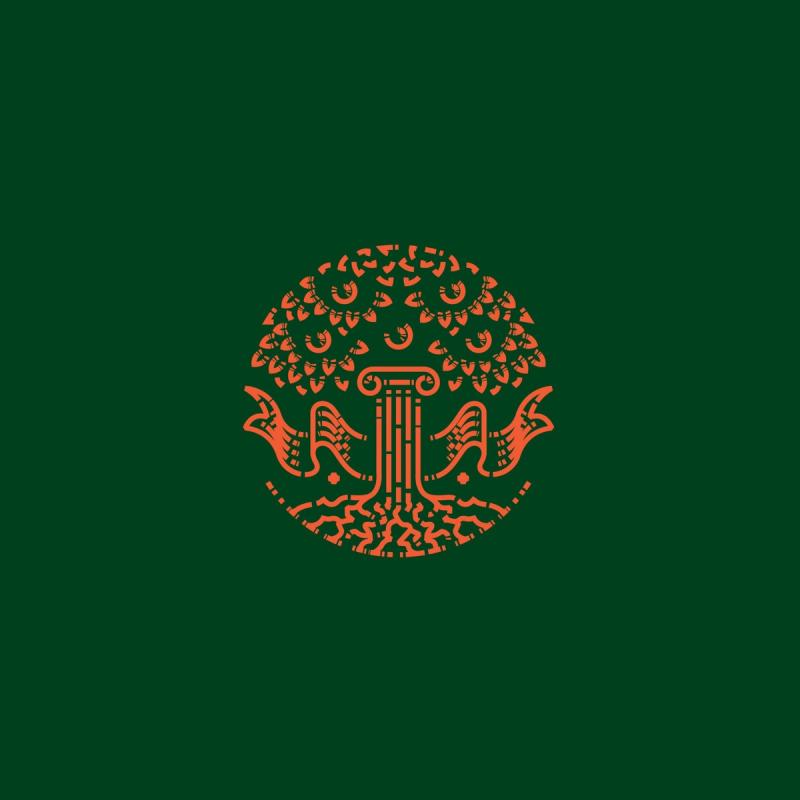There is a myth about theology that it is written in open, expansive, even leisured times of quiet reflection. To write a commentary on a book of Scripture, or a treatise on some point of doctrine, or an entire system of theology, or an individual sermon—well, perhaps not a sermon—happens on its own schedule, taking as long it takes. Nothing could be farther from the truth. In the early modern period, it was not only the next divine service on Sunday that loomed as a deadline by which time thoughts and words needed to be put into some sort of order. There was another calendar—indeed, one harsher and grubbier, belonging to what we might call fiscal time—whose tempo governed the activities of theologians everywhere in Europe. For books, including theology books, the whole business revolved around the book fair.
Authors sought publishers; publishers sought audiences. At the book fair, each party gathered en masse. An established sequence of fairs ran throughout the year. At Easter, there were notable international fairs at Leipzig and Lyon. In August, Lyon hosted a second fair; in September, Leipzig did too. In Spain, the trade market boasted two fairs at Medina del Campo in May and October. In Italy, major fairs occurred at Recanati, Foligno, Naples, Lanciano, and Venice. Smaller provincial fairs filled the gaps. These were antipasti to the main meal. Book lovers of every kind feasted twice per year, in spring and autumn, when the Frankfurt book fair dominated the transnational print economy. In each case, commercial, religious, and intellectual interests converged.
Theologians, among other scholars, built their writing schedules around the event. References to book fairs pepper countless pages of correspondence from John Calvin, for example: “We will have to delay publication of my work until the next fair,” “I decided to wait to write this until the time of the fair,” and so on.[1] In 1542, the Dutch Roman Catholic Albert Pighius attacked Calvin in Ten Books on Human Free Choice and Divine Grace. Calvin informed Guillaume Farel that he would produce his response for the next fair.[2] Time was short, so Calvin only refuted the six books on free will.[3] As for the four books on predestination, Calvin announced in the work itself, “I will leave this topic aside until the next fair.”[4] Pighius died before then, so Calvin never produced the final section.
Publishers grew obsessed with meeting fair deadlines to bring new titles to market. In 1522, Melchior Lotter printed Martin Luther’s “September Testament,” the landmark translation of the New Testament from Greek into German that Luther had achieved in only eleven weeks while sequestered in the Wartburg. At record speed, Lotter produced three thousand copies, much higher than the average print run, ensuring that the book would reach the public at the Leipzig fair.[5] If Luther’s translation was relatively expensive, the booksellers might have applied the motto of another printer, Johann Froben from Basel: “He who buys a good book at a high price gets a bargain, whereas he who buys a bad book cheaply gets a loss.” Printers often took two weeks’ vacation after the biggest fairs to rest their overworked bodies.[6] When in 1563 Jean Crespin printed Calvin’s lectures on Jeremiah, he had to run two presses simultaneously in order to finish the job by the time of the next fair. To the errata sheet in the book Crespin added a note of explanation, begging for leniency.[7]
The Frankfurt book fair served up books with large portions of drama and occasional helpings of intrigue and scandal. As a free imperial city, Frankfurt am Main belonged to the Holy Roman Empire but was not subordinate to a regional ruler. The City Council, which was Lutheran from the 1530s, went to great lengths to promote the money-making side of the fair: foreign merchants who attended found themselves and their goods greeted by armed escorts for protection and toasted by local officials with a glass of wine, while church bells rang to announce their arrival. Major publishers from cities such as Zurich, Heidelberg, Basel, and Antwerp rented warehouses to store books in Frankfurt year-round. In bookstalls and bookshops, book dealers who spoke Latin, French, and German greased the international wheels of trade. Scholars gathered to meet other scholars, and publishers other publishers. They swapped ideas, gossiped, and, of course, shopped. Books and other print-related commodities—paper, punches, typefaces—were bought and sold in remarkable volume, but so too were cloth, silk, jewels, arms, and horses. For eight days twice a year, Frankfurt buzzed.[8]
Not everyone, however, approved of the arrangement. When Erasmus of Rotterdam learned that his friend, theologian Johannes Oecolampadius, had been at the book fair, he sent Oecolampadius away with fleas in his ear: “How could I have guessed, my dear Oecolampadius, that a man devoted as you are to heavenly things would be found at Frankfurt in that sink of human vileness?” Elsewhere, Erasmus described the gathering as a “forum for the affairs of thieves, imposters, perjurers, usurers, and peddlers.”[9] Occasionally, fighting broke out between Protestants and Roman Catholics. One pleasantly named bookseller, Schönwetter, was known as a Roman Catholic at his residence in Mainz, but he disguised himself as a Protestant when he visited Frankfurt in order to sell more books.[10] The spectacle was not to be missed.
Unsurprisingly, the Frankfurt book fair became a site of heated encounter. In 1587, the French scholar Claude Aubery published a theological essay ostensibly based on Romans that collapsed justification and sanctification into each other. In Geneva, Theodore Beza and the Company of Pastors objected to it immediately. Despite Geneva’s efforts to prevent its distribution, Aubery’s book aroused interest among certain French Protestants throughout Europe and lit a tinderbox of controversy. Under considerable pressure, Aubery finally agreed to accept the common confession of the Swiss churches and to allow the suppression of his book at the Synod of Bern in 1588. Two years later, however, Aubery appeared in Basel on his way to the Frankfurt fair to distribute copies of his condemned work. One of the ministers of Basel’s Reformed church of French émigrés apparently untangled Aubery’s plan and stalked him up the Rhine River to prevent him from shopping his wares.[11]
The marketplace opened up more exciting—and orthodox—possibilities. Amandus Polanus was a brilliant theologian who studied in Basel and Geneva and tutored a Czech noble family. He was heavily recruited by the Genevan Academy, the University of Leiden, and the University of Basel to teach the Old Testament—but only the last institution was successful. While still a tutor, he brought one of his pupils to the Frankfurt book fair. Perusing the catalogs there, he was shocked to find himself a published author. He had written a little textbook of theology and sent the manuscript to his academic adviser, Simon Grynaeus, for feedback. Grynaeus liked the manuscript so much that he rushed it into print—without Polanus’s consent![12] While Polanus’s student may have been impressed, he was thoroughly embarrassed. He quickly revised and expanded the amateur work—from twenty-eight folio pages to almost three hundred octavo pages—into the Partitiones theologicae. The book summarized the theology that Polanus had learned from some of the great Reformation theologians: Luther, Calvin, Philip Melanchthon, Peter Martyr Vermigli, and Zacharias Ursinus. An English translation under the title The Substance of Christian Religion soon appeared. On the back of his startling success, Polanus wrote two larger books that cemented his status as one of the most significant dogmaticians of classical Reformed theology: the Symphonia catholica, a summary of Patristic theology, and the Syntagma theologiae christianae, a multivolume systematic theology that brilliantly codified Reformed doctrine.[13] Without Polanus’s experience at the book fair, who knows whether these landmark tomes would have come to be.
Doubtless there are many stories one can tell about the Reformation and the book fairs, with more extravagant instances of mercantile profiteering, doctrin-al polemic, and legal trouble. Yet these mundane, even unseemly, phenomena had a hand in the production and influence of any given theological text. The Reformation knew how to get into a rhythm. Recognition of this fact—indeed, delighting in these details—is not to embrace a radical theory of history. Instead, it should impress upon God’s people a profound appreciation for God’s great providence: that even a frenetic book fair yielded theology that was faithful and that edified the heart.
Zachary Purvis (DPhil, University of Oxford) teaches church history and theology at Edinburgh Theological Seminary.
2. Calvin to Farel, December 15, 1542, in Ioannis Calvini opera quae supersunt omnia, 11:474.
3. John Calvin, The Bondage and Liberation of the Will: A Defence of the Orthodox Doctrine of Human Choice Against Pighius, ed. A. N. S. Lane, trans. G. I. Davies (Grand Rapids: Baker Books, 1996).
4. Ioannis Calvini opera quae supersunt omnia, 6:404.
5. Wolfgang Schellmann, “Luthers Septembertestament von 1522,” Archiv für Geschichte des Buchwesens 72 (2017): 1–22.
6. Ian Maclean, Scholarship, Commerce, Religion: The Learned Book in the Age of Confessions, 1560–1630 (Cambridge, MA: Harvard University Press, 2012), 15–16.
7. Ioannis Calvini opera quae supersunt omnia, 20:66; Rodolphe Peter and Jean-François Gilmont, Bibliotheca calviniana, vol. 2 (Geneva: Droz, 1994), nos. 63/16, 63/19.
8. Peter Weidhass, Zur Geschichte des Frankfurter Buchmesse (Frankfurt am Main: Suhrkamp, 2003).
9. Erasmus to Oecolampadius, March 13, 1518, in Collected Works of Erasmus (Toronto: University of Toronto Press, 1979), 5:346–47; Erasmus, Dialogus bilinguium et trilinguium, in Collected Works of Erasmus, 7:336.
10. Hildegard Starp, “Das Frankfurter Verlagshaus Schönwetter, 1598–1726,” Archiv für Geschichte des Buchwesens 1 (1958): 38–113, at 43–45.
11. See Zachary Purvis, introduction to Justification by Faith Alone: Selected Writings from Theodore Beza (1519–1605), Amandus Polanus (1561–1610), and Francis Turretin (1623–1687), trans. Casey Carmichael (Grand Rapids: Reformation Heritage Books, 2022).
12. Amandus Polanus, preface to Partitiones theologiae (Basel, 1590), n.p.
13. Purvis, introduction to Justification by Faith Alone.








